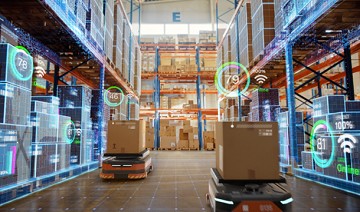Look to AI and Upskilling to Bolster Retail Supply Chain and Logistics Workforces
The retail sector is the engine powering modern commerce. Yet the industry is plagued by a persistent labor shortage. Filling vacant positions has become a herculean task, demanding innovative approaches to retention and leveraging technology.
The reasons behind the labor shortage are complex. The pandemic undoubtedly played a part, prompting many to reassess career paths. Additionally, competition for talent is fierce, with rising wages in other sectors pulling workers away. This creates a ripple effect, leading to supply chain disruptions; depleted inventories; and ultimately, frustrated customers.
AI is a powerful ally
Artificial intelligence (AI) can revolutionize the workforce landscape in retail supply chain and logistics. Here are just a few examples:
- Streamlining tasks: AI-powered automation can handle mundane, repetitive tasks such as inventory management, order fulfillment and customer service inquiries. This frees up human employees to focus on higher-value activities, such as building customer relationships and problem-solving.
- Optimizing efficiency: AI can analyze vast amounts of data to optimize processes. Imagine route optimization for delivery drivers or predictive analytics to fine-tune warehouse operations. This not only drives efficiency, but also reduces employee workload and fatigue.
- Augmenting human capabilities: AI doesn't replace human workers; it empowers them. For example, AI-powered chatbots can help customer service representatives by handling routine queries, allowing them to use their talents for more complex customer interactions.
Retention is the key to continuity
Of course, the key to harnessing the power of AI lies in a well-trained, tech-savvy workforce that knows how to implement and maximize this technology. ASCM enables this understanding through its Technology Certificate, which provides learners with a solid foundation in AI, among numerous other essential tools. The program covers AI principles and applications in supply chain and logistics, explains how to identify and evaluate potential AI solutions for specific logistics challenges, and teaches proven strategies for successful implementation and integration with existing systems.
Building a qualified workforce
Leading retail supply chain and logistics organizations also focus on fostering positive work environments with opportunities for growth and career development. There’s no doubt that employees respond to this commitment to their continuous learning — and, of course, it strengthens the organization's overall retail expertise.
Building a qualified workforce is an ongoing process, so partnering with a trusted education provider like ASCM offers several advantages: ASCM's programs are specifically designed to help your teams become more proficient, adaptable and future proof in a rapidly changing landscape. This translates to a more efficient and competitive organization, ultimately benefiting both your operations and your customers.
A collaborative approach
The future of retail supply chain and logistics workforce management lies in a collaborative approach. By combining strategic implementation of AI with innovative retention strategies, retail and logistics businesses can navigate the labor shortage and ensure a more efficient, resilient and customer-centric network.



